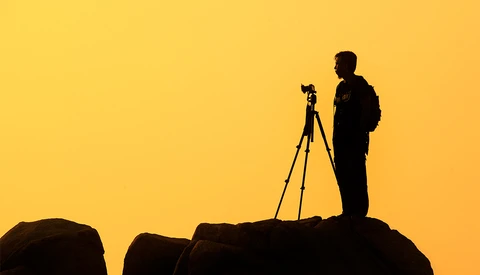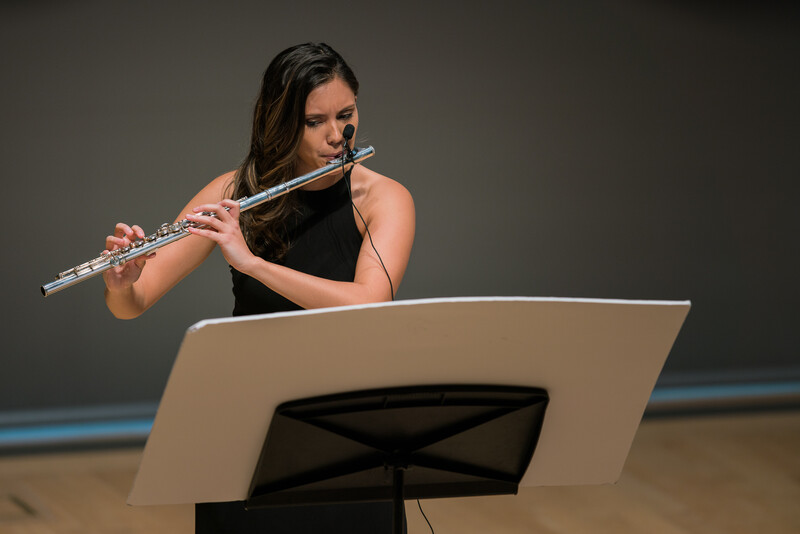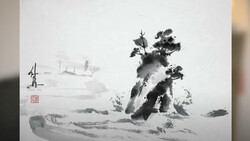

Given the choice, most of us would probably buy the latest and greatest camera bodies as soon as they came out, because hey, new toys are cool, right? But most of us don't have unlimited budgets, so it's important to know when you really need to upgrade and when it's just a case of gear lust. Here's what to consider when you're wondering if it's time to buy a new camera.
Is Your Camera the Most Needed Upgrade?
Photography equipment includes a whole range of items, only one of which is the camera. I always say I'd rather have an older camera with stellar glass on it than a new camera with mediocre glass. Perhaps you're running out of storage and need a new hard drive. Don't overlook the improvement a new computer or a professional monitor can have on your workflow. Perhaps you haven't started to explore artificial lighting yet. The camera is only one part of a complex equation, so make sure it's the one that truly needs the most attention.
Are You Missing Crucial Shots Because of Your Current Camera's Limitations?
Can you point out a specific shooting situation in which you're missing shots because of a specific deficiency in your current camera? The more specific you can be, the better. For example, if you're a bird or sports photographer, if your autofocus tracking is just not keeping up with subjects, that's a valid reason to seriously consider an upgrade. If you're a wedding photographer and your camera puts out terrible files above ISO 800, that can be a serious obstruction in your work. Before you make the decision that it's the camera holding you back, be sure that your technique is completely sound and you've thoroughly investigated all the settings of your current camera, particularly with something like autofocus, which can often be highly customized to improve performance in specific situations. Be sure the shots you're missing are ones you consistently need and take, not just the once in a great while ISO 51,200 shot.
Will It Increase Your Efficiency?
For example, say you shoot sports and you're constantly dealing with color issues from flickering artificial lights. Recent Canon bodies contain an anti-flicker feature that subtly modifies the timing of the shutter to obviate this issue, thereby ensuring consistent color and exposure across all your images. This could obviously save significant time when you're editing large sets of photos. If you're a landscape photographer and you constantly have to bracket and blend your photos because of an older sensor, a newer model with better dynamic range could save you a lot of time editing. Time is money, particularly when you're running your own business, and if a new camera can contribute to significant time savings, it can pay for itself from that alone.
Will It Do Something to Increase Your Income?
If there's a specific genre you're working in or looking to get into that your current camera equipment isn't adequate for, it might be time to upgrade. It's important to note the order of this need, though: be careful that you truly want to expand your photographic pursuits and the need for an upgrade is a consequence of that, not that you're trying to convince yourself you're interested in it simply to justify buying that shiny new camera. For example, if you sell fine art prints and your current camera has a 12-megapixel sensor, upgrading to a high-resolution model with 30-50 megapixels will you give you vastly more printing options and the ability to move into selling lucrative large prints.
Do You Need Those Capabilities?
It's really cool that that flagship model shoots 14 fps, but if you're a landscape photographer, are you really going to take advantage of that? (Side note: if you're a landscape photographer and you're shooting 14-fps bursts, we need to talk.) It's easy when you're looking at cameras to get caught up in the flashy and impressive specs, but make sure you're focusing on those that matter to what you shoot. Don't end up overpaying for a higher-end model that you don't actually need.
Is Your Current Camera Failing or on the Verge of It?
If you're just a hobbyist, it's probably not a big deal if your current camera gives up the ghost after 10 years and you're without one for a week. On the other hand, if you're a professional and you're relying on it for work, don't play with fire by continuing to take a camera that's limping along to shoots with no backup. See about having the old camera repaired, and if the cost is too great for its performance, consider buying a new one. A great option is to then keep the old one as a backup or second body if you need one.
Can Your Computer Handle It?
In the past few years, it seems that 25-30 megapixels has become the new standard for bread and butter cameras like the Canon 5D Mark IV and the Nikon D750, while high-resolution cameras sit near 50 megapixels. All those extra pixels can really bog down a computer, so make sure you're ready to handle them so your workflow doesn't become frustratingly slow. On the same token, make sure you've got enough storage for all those files.
Is It Actually for Fun?
Yes, I just spent several hundred words admonishing you to make sure you have a legitimate professional reason for purchasing a new camera. At the same time, though, photography is supposed to be fun, so if you have the disposable income and just want to enjoy playing with that nifty gadget that takes pictures, by all means, feed your passion. Just remember that it's not going to make you a better photographer; only you can do that.
The Philosophy
At the end of the day, I think the best rule to go by is this: be able to articulate a specific and significant need in your work that your current camera is incapable of filling before you decide to buy a new model. If your technique is sound and the need is there, by all means, upgrade your camera.
Lead image by Zukiman Mohamad, used under Creative Commons.


15 Comments
it honestly only comes down to one question.
do you need it or do you want it ?
Agreed. As I have pointed out many times to my own kids, there is a big difference between "I need" and "I want". And I appreciate any article which faces this issue head on, so thanks, Alex. A breath of fresh air.
Well...how do you define "need"? I think Maslow erred by including Self-actualization as a need (or perhaps just the inclusion of creative activities), which would negate the need for any camera. But that's just me. :-)
I define "need" in terms of the series of essential questions that Alex Cooke has laid out as bullet points in the above article.
I would include, "Will its acquisition allow me to sleep better at night, because I really need 4 more megapixels and the ability to shoot 1.5 more fps?" :-)
I was just kidding. I honestly think it's nobody else's business when you want to buy a new camera. But, again, that's just me.
Pedro is spot on. we all want the newest but don't need it. you "need" a camera to take picture, just not a new one. we have all read and watched a youtube video of people making fantastic photos with old gear. this same thinking goes with the megapixel debate. no one "needs" 50mp.
I stopped mentioning what camera I use because still so many people thinks that it’s the camera and not the eye, especially when my camera is neither the top one or the latest. Do I want the latest top one? Yes! Do I need it? No. Luckily the manufacturers had put such a ridiculous prices on new models that discourage me to upgrade the bodies what I have, but I keep investing in good glass.
I don't need anything,... my client need my work, my camera do it for me (kinda)...
As soon as a client start to ask for something my camera can't handle.. I need to upgrade.
But, I also need some training, so It's important to rent, time to time, the last generation equipment to know what's going on.
When i upgraded my first DSLR it was very much a need question as the model I had then was really hindering shots for me. I needed faster shutter (more frames per second), more ISO capability and since I use my left eye in the seeker my nose kept hitting buttons all the time. Since then i have upgraded several times, mostly because of focus abilities. Now i have a great camera that has 2 newer versions realeased, it is not a full frame, and it is probably strongest at action which i take very seldom now. I have not been able to see the argument ( for me personal) what an upgrade within the same camera family or a step into the 5d world would do for my photography. The last few years I have instead added more high quality glass to the collection.
more people should be investing more in glass than camera bodies. that's the way to go for sure!
Personally, I like to replace my camera before the old one wears out, that way the old one can be demoted to "backup" duty so I never have to buy a backup camera, its always just my previous camera. Makes for a nice clean cycle.
1. Is this really the camera that I want to get?
2. Can I afford it?
Those are pretty much the only two questions that matter in my opinion. Just about anything else assumes that there is such a thing as a "legitimate" or "illegitimate" reason for getting a new device.
Frankly speaking, if we care at all about the health of this struggling industry, we would probably do well to encourage those with disposable income to buy all the gear that they can and upgrade every single time something new comes out since that means a greater likelihood for all of these companies to continue to survive in this business.
I've recently been involved in a similar discussion. At the end, my personal conclusion was that the gear I have produces shots so close to perfection that any further incremental qualities in the "next cam" in the series would be purely marginal - that the improvements would not be detectable as long as the shots remained in a digital format (as 99% of all the photos being shot today are) - that because of the limitations of the printing process, much the same would still be true when I printed them - that I could achieve more (at least for the time being) spending not-quite-as-much on other gear that I DON'T have - and that in any event I couldn't justify the spend until I have worked a lot harder and longer to improve my photography with my current gear, until I am getting the best I can out of it, before "upgrading". In the meantime, one of two things is likely to happen - one, that an even "greater" new model will replace the one I am supposed to consider upgrading to right now, this instant - and two, that by the time I decide to upgrade I will have two options - first, to buy today's "new model" at a bargain price, or second, to buy the even better one that replaces it. I don't see how I can lose, by following that path.
This is a good article that brings up many important issues.
I use a camera until it dies, or no longer meets my needs. Even then, I refuse to spend $1,000 or more on a body. The body is just a light-tight box you stick a lens on. I don't need any bells and whistles. I only shoot in Manual mode, and I've only used continuous shooting mode twice in five years. But that's me, you may have different needs. That's needs, not wants.
Currently I use a Canon EOS Rebel T5i, and it does more than I need. My only want is a few more focus points.
A camera is a tool, and you need to choose the right one for the job. But if you buy a $5,000 body, but an $800 body would have worked, then you will have to generate $4,200 in profit to pay for your "want." And that's money going to a camera manufacturer instead of being in your pocket.
Have Fun,
Jeff
While a good lens can vastly improve iq, a good camera will make a huuuuge difference in intuitiveness and fun. switching from a bad camera to a fuji xt-2 even though image quality is similar, will may be worth more than the increase in iq you get from switching to a better lens at a similar price. not to mention that a better autofocus system and better lowlight capabilities can depending on the situation open whole new genres up to you..